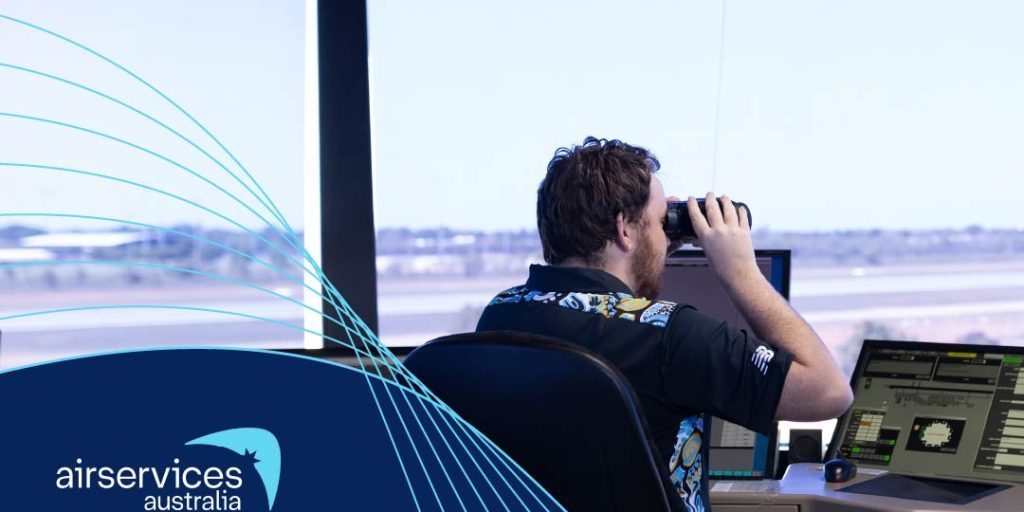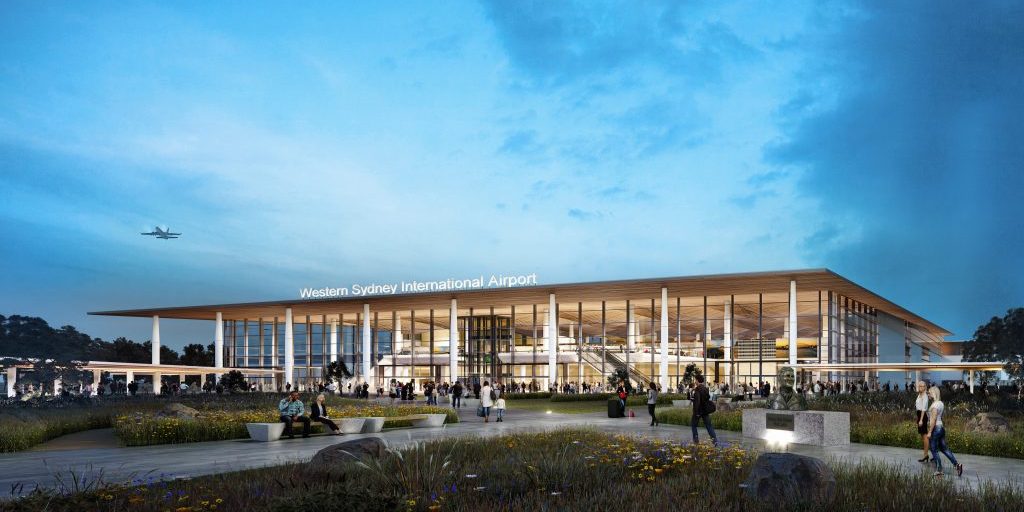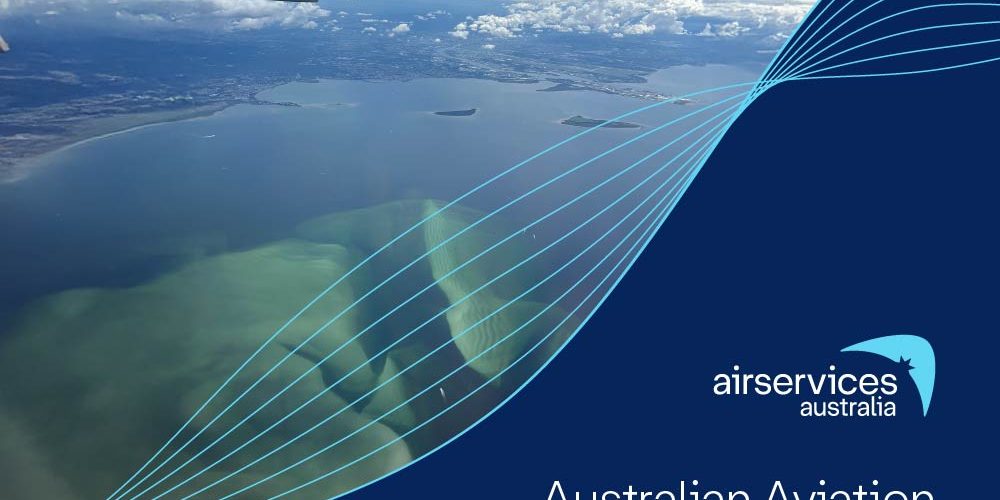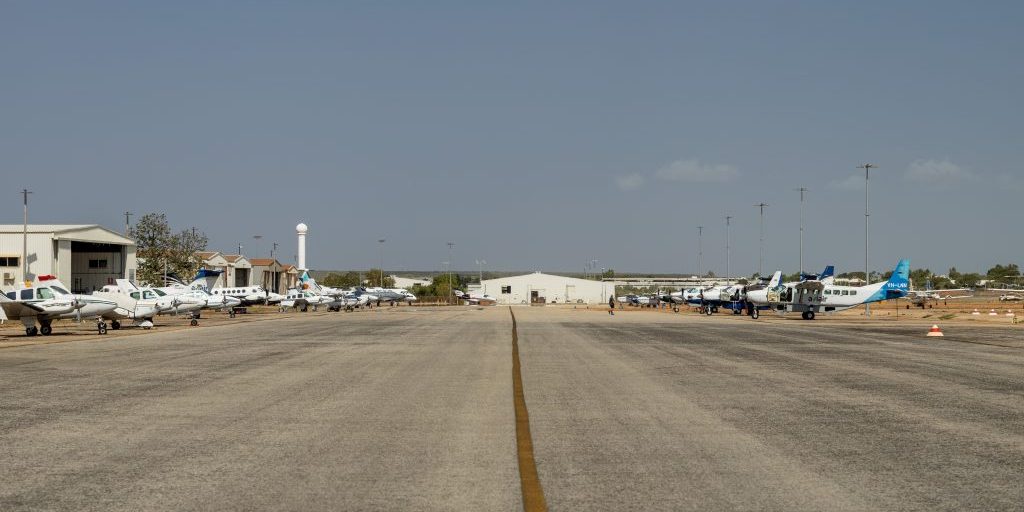A dedicated team of air traffic controllers worked closely with Qantas for several months to ensure the success of the first nonstop flight from Australia to the United Kingdom on 24 March.
The team left nothing to chance, aware that QF9 would be departing Perth Airport at its maximum take-off weight loaded with 110,000 litres of fuel and over 200 passengers and 16 crew.
Perth-based air traffic controller and Line Manager Wayne Zilko, who was an integral part of the planning team, said safety and efficiency was the focus.
“Weight was the biggest challenge. We needed to work with the pilots to get the fully-laden Boeing 787 weighing 254,000 kilograms off the tarmac safely and efficiently. We considered every minute detail,” Mr Zilko said.
Equally important was fuel consumption.
“Just the eleven minute taxi to the holding point before take-off used about 500 litres of fuel,” he added.
There were four Airservices controllers managing QF9 as it set out on its momentous journey, leaving shortly after 7pm and taking about 50 seconds to get airborne.
“The team recalls the pilot saying ‘Request direct Heathrow?’ which gave them a good chuckle – you certainly don’t hear that every day!
“While we couldn’t guide them on the entire 14,498 kilometre journey, we felt really privileged to be the ones overseeing their departure.
“After a few bumps, courtesy of ex-Tropical Cyclone Marcus, they climbed out at around 500 kilometres per hour to 34,000 feet, which is 10,360 metres if you prefer. Then it was only about 10 minutes before we handed them over to our enroute colleagues.
“Many people are surprised to learn we don’t actually oversee long haul flights from the airport. Aircraft heading out over the Indian Ocean are actually managed by an expert team in our Melbourne control centre,” Mr Zilko said.
Melbourne-based Service Manager Alby Goodsell and his team, who were also heavily involved in planning the flight, then picked up the Dreamliner 60 kilometres off shore, guiding the aircraft on the next leg of its 17 hour journey.
“There was some excitement when they handed over QF9. We were playing a role in a history-making flight and it was our job to get them safely to the international flight boundary, Mr Goodsell said.
“Of course much of the hard work had already been done in the months preceding with the intensive planning with Qantas.
“The biggest difference with this flight was it didn’t follow a traditional fixed route, as these are not always the most efficient in regards to fuel or time in the air.
“For QF9, we utilised what is known as a ‘user preferred route’ which is modelled by Qantas’ flight planning system. It calculates the most efficient path taking into consideration wind speed and direction, turbulence, temperature, aircraft type and performance,” he added.
Airservices controllers managed the flight across a vast volume of airspace above the Indian Ocean.
“Being so far away from land, voice communications are challenging so we use a special system which is best described as a high-tech, long-range SMS service. It’s a really effective and efficient way of communicating with the pilots,” Mr Goodsell said.
“The crew were constantly monitoring the 787s performance especially fuel burn. Some hours into the flight they’d burnt enough fuel and were light enough to climb higher to further improve efficiency. Jet engines are more efficient at higher altitudes, which again helps manage fuel burn and flight time.
“Over 4,500km later it was then time to hand the aircraft over to the Colombo ATC team,” he added.
Airservices staff were just a handful of a vast number of highly skilled people who supported the inaugural flight to arrive safely, and on time at London Heathrow airport.
“Even though this was a truly landmark flight, and there were detailed logistics involved, this is really business as usual for us, it’s what we do 24/7, 365 days a year.
“Whether it’s about getting a medical rescue aircraft into a remote area, a regional flight from Sydney to Broken Hill or this amazing aircraft from Perth to Heathrow and return, our priority is ensuring people get to their destinations safely,” Mr Goodsell added.
To learn more about what’s involved in flight planning and air traffic control visit the Airservices website.
*Photo supplied by Qantas



